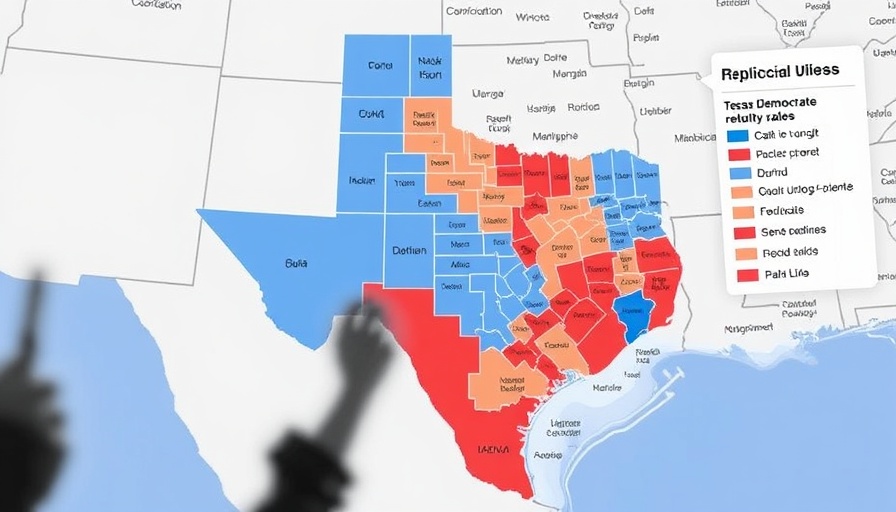
Texas Tackles Social Media Usage Among Minors
In a bold move, Texas is on the brink of implementing one of the nation’s most sweeping restrictions on social media for minors. With the Texas House already having passed the bill and the Senate expected to follow suit, the legislation seeks to entirely ban minors under the age of 18 from accessing social media platforms. This legislative initiative aims to address the growing concerns around the mental health implications of social media on young users.
Key Provisions of the Proposed Legislation
If enacted, the new law would require platforms to verify users' ages, ensuring minors cannot create accounts. Parents would have the authority to request deletion of their child’s accounts, and companies must comply within a specified timeframe. Violations of this provision could lead to hefty fines and lawsuits, as they would be classified as “deceptive trade practices” under Texas law.
The Broader Debate: Safety vs. Free Speech
This legislative action in Texas does not occur in isolation. Many states across the U.S. are considering similar bans as part of a broader national debate over the safety of young users online. Advocates argue that such measures are necessary for protecting children’s mental health. However, critics—including free speech advocates—argue that these restrictions may infringe on the rights of children to express themselves and connect socially online.
Expert Opinions: A Mixed Bag
Concerns voiced by experts highlight the complexity surrounding social media usage among youth. Dr. Mitch Prinstein, chief of psychology strategy at the American Psychological Association (APA), has cautioned against a simplistic ban without addressing the underlying issues. He suggests that merely delaying access without educational support might leave youths vulnerable later. “It's imperative to consider comprehensive approaches rather than just prohibitive measures,” he stated, pointing to the need for effective educational frameworks on digital etiquette and mental health.
Counterarguments and Diverse Perspectives
While some psychological wellness groups laud the potential for enhanced safety, others believe that blanket bans may push these interactions underground or onto less-regulated platforms. Critics question whether restricting access is a sustainable solution or merely a temporary measure that overlooks the root problem: how to best navigate technology's influence on young minds.
Looking Ahead: The Future of Social Media Regulation
As Texas progresses with its legislation, the implications for other states and the nation as a whole remain uncertain. Legal challenges are anticipated, particularly regarding the First Amendment and free speech rights. Moreover, as society becomes increasingly digital, understanding and navigating social media's impact on youth will likely require a nuanced approach, combining regulation with education.
The Implications for Texas Parents
For Texas parents, these developments signal a pivotal change in how their children access social media. While safety is undoubtedly a priority, parents must also consider how to educate their children about online behavior and risks.
Conclusion and Call to Action
The ongoing debate surrounding Texas’s proposed ban on social media for minors highlights a critical intersection of youth safety, mental health, and free expression. As legislation unfolds, it is crucial for parents and guardians to stay informed about their children’s digital interactions and advocate for balanced approaches that foster safe social media usage while promoting healthy online behaviors. Engage in conversations with your local representatives about the importance of educational resources alongside any enacted policies.
 Add Row
Add Row  Add
Add 




Write A Comment